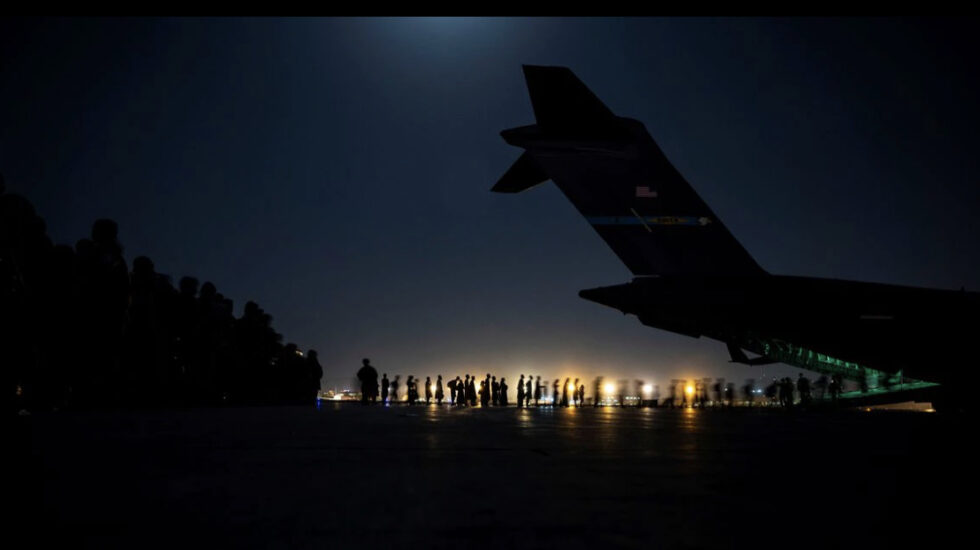On Monday, its last full day in Afghanistan, the U.S. military intercepted as many as five rockets launched toward Hamid Karzai International Airport in Kabul. There are no known casualties.
The Islamic State took responsibility for the attempted attack, according to Reuters. The rockets were launched from a modified civilian car. Some missed their intended target and landed in a residential neighborhood. Others were intercepted by the C-RAM defense system installed at the airport. CNN explains:
C-RAM is an automated system that detects incoming attacks and uses a machine gun to destroy the incoming fire before it can hit its target. The system has been used in Iraq and Afghanistan to intercept and destroy incoming projectiles targeting US forces.
President Biden has been briefed on the attack and “has reconfirmed his order that commanders redouble their efforts to prioritize doing whatever is necessary to protect our forces on the ground,” according to The White House, which noted that flights out of the country have continued apace.
The Taliban, which considers the Islamic State an enemy, has “tightened their security cordon around the airfield after the attack, clearing away massive crowds of Afghans who were desperate to flee the country in the waning days of the U.S.-led airlift. Taliban fighters are now stationed along a fence near the main runway,” reports The Associated Press.
Last week, the Islamic State detonated two suicide bombs outside the Kabul airport, killing 13 Americans troops and over 200 Afghan civilians. A second terror attack was thwarted on Sunday, according to U.S. officials, when an American drone destroyed a car packed with explosives that was destined for the airport. Reports indicate that 10 civilians may have died in that drone strike, which the U.S. says was necessary because of an “imminent” threat.
In a statement, U.S. Central Command said it was aware of reports of civilian deaths and was “still assessing the results of this strike.”
Despite the violence, the U.S. managed to evacuate 1,200 people during a 24-hour period between Sunday and Monday. Since August 14th, the U.S. has airlifted nearly 117,000 Americans and American allies out of Kabul.
But ongoing threats have forced the U.S. to curb some of its evacuation efforts. “On Sunday, hundreds of students of the American University of Afghanistan boarded buses at designated points in Kabul with plans to go to the airport. But after waiting for several hours, with more attacks deemed imminent, officials decided to abandon the operation,” The Wall Street Journal reports.
“The evacuation effort has undoubtedly saved tens of thousands of lives, and these efforts are praiseworthy,” UN refugee chief Filippo Grandi told Reuters.
“But when the airlift and the media frenzy are over,” he added, “the overwhelming majority of Afghans, some 39 million, will remain inside Afghanistan. They need us – governments, humanitarians, ordinary citizens – to stay with them and stay the course.”



